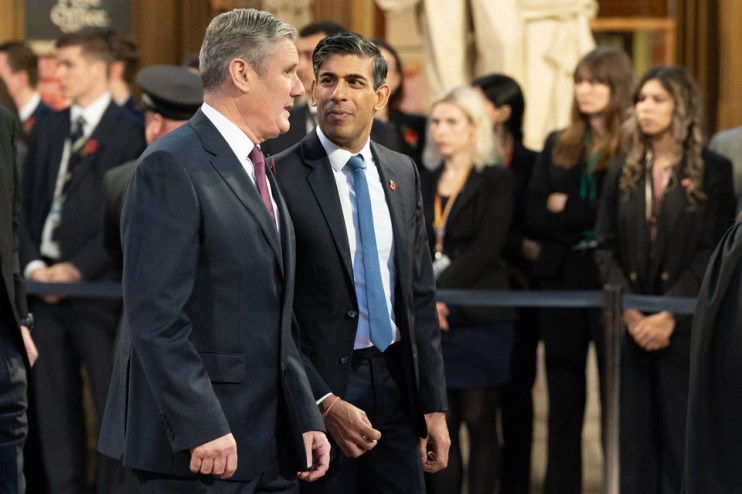‘Tough on crime’: Will Sunak’s law and order focus deliver at the polls?

‘Tough on crime’ and ‘it’s the economy, stupid’. Two historic election slogans; two iron-clad rules for parties hoping to win, or stay in, power.
Blair’s 1997 landslide was, at least in part, thanks to Labour’s success in making law and order their dividing line. The messaging of ‘you’ll be safer with [insert name]’ is central to Tory City Hall hopeful Susan Hall’s campaign, who says policing is her passion project.
And while nthe UK’s economy is in far from great shape, with pessimists warning we could potentially already be in a recession (all eyes on new GDP figures out on Friday), Sunak and Hunt have made stern fiscal discipline their calling card.
Pull both threads together, and you’re potentially onto a winner. So, it makes sense to put crime and punishment at the heart of the King’s Speech today.
More in Common (MiC) polling found in September that Labour were leading the Conservatives, with 32 to 28 points, on public trust to tackle crime. But forget the four per cent; what Tory election strategists will be looking at is that 40 per cent who said ‘don’t know’.
As MiC’s Luke Tryll put it: “Labour leads on an issue that should be solid Tory turf and that lead is even higher among Red Wall voters, but there are lots who could be persuaded.”
Justice secretary Alex Chalk – who played a starring role in today’s pomp, sporting a huge white wig – has of course denied plans to lock up killers, rapists and grooming gangs for longer are simply a bid for votes ahead of the next general election.
But with six of the 21 Bills included in today’s speech being led by either the Home Office or the Ministry of Justice; from “tougher sentences” to moves set to boost “security and intelligence” the government’s core message to voters is loud and clear.
All well and good to tell people they’ll be safer under your leadership, some say, but looking at the details of “tougher sentences”, this applies to the most dangerous prisoners, the worst murderers, those committing crimes with “sexual or sadistic” elements – i.e. a small fraction of the total number of criminals, who are, in the grand scheme of things, already face heft sentences.
Labour’s shadow justice secretary Shabana Mahmood called it “repackaging ideas” that ministers have mooted time and again, labelling the stance as simply “posturing on law and order”.
Looking at the state of the UK’s justice system, it appears Labour might be right that this ‘tough on crime’ message is nothing more than an empty promise.
The UK’s courts are in chaos, with massive case backlogs and crumbling courts meaning the very victims they claim to want to seek justice are at huge risk of being sidelined.
The real test for the Conservatives will be making sure that its track record in the areas it wants to campaign on, from crime to the economy, support its pledges ahead of the next general election. Otherwise voters will see through the rhetoric and ditch them at the ballot box.